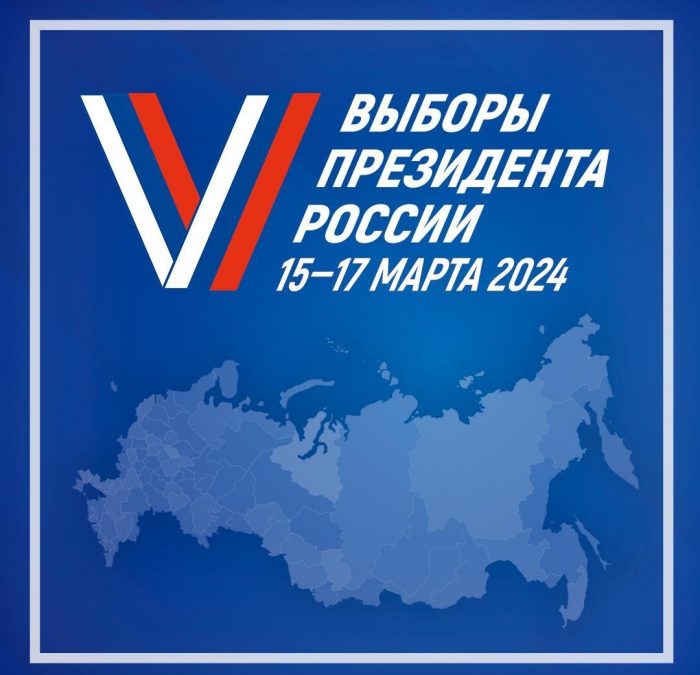March 17
By Jack Gorman
The three-day voting for the election for the President of the Russian Federation finished all over the country. It was held in this form for the first time. To make voting more convenient, regional election commissions provided several options: voting remotely, at home through an app, or in person at a polling station. Residents of distant and hard-to-access areas were able to cast their votes early, between February 25 and March 14. Representatives of the PEC (presidential election commission) reached them using helicopters, off-road vehicles, and other suitable equipment. Nearly 2.6 million people took advantage of their right to participate in elections ahead of schedule. Russian citizens living and working abroad also took an active part in voting. Moreover, there were queues recorded at some polling stations abroad, such as in Seoul. In Thailand, the turnout was higher than expected. In Pattaya, voting time had to be extended twice. The first voter in Canberra received a ballot immediately after the opening, a woman who flew in from Melbourne waited from 7 am at the polling station. In Dushanbe, dozens of people arrived at the opening of polling station in Russia half an hour before voting began, forming a queue in front of it. The Russian embassy in Uzbekistan was also busy, with many arriving long before voting took place. According to the official representative of the Russian foreign ministry, Maria Zakharova, despite all pressure from the west, Russia failed to set up a polling station only in one country. “We deployed the sites, despite the fact that we understood the risks. Voting took place ahead of schedule and there was an exit poll. Of course, the number of sites has been reduced due to the fact that the number of our foreign institutions in countries of the Western world has been reduced. At the same time, the number of countries where our elections are held abroad is almost the same: minus one country only”, she noted, commenting on the organization of voting by Russians abroad.
The voter turnout in elections held between March 15th and 17th was a record of 73.3%. In all previous presidential campaigns, the turnout approached this level, but never exceeded it. In 2018, the turnout was 67.5%.
In some regions, this figure was significantly exceeded. Chukotka leads in the Far East, with more than 88% of voters visiting to polling stations there. The Jewish Autonomous Region is the next in lead. The Kemerovo region in Siberia had the most active voters. The Chechen Republic is traditionally among the regions in the Caucasus – more than 90% turnouts.
For the first time during the presidential campaign, Moscow and 27 other regions in Russia are using a remote voting system on par with traditional voting sites. This method of expressing your civic position has become popular in Kamchatka, which is the only region in the far east where this form of voting is available. As a result, more than 43,000 people voted for their preferred candidate without leaving their homes – this represents almost 94% of those who wanted to participate in voting in the digital electronic format (DEG). When it comes to city residents, mobility is clearly preferred – about 80% of Moscow residents preferred the remote option. Meanwhile, 20% prefer the traditional paper option.
Almost 350,000 people observed the honesty and transparency of the voting process at polling stations – these are public observers. Among them, more than 700 are foreign citizens from 106 different countries. For instance, the operation of the ballot processing complex (COIB) surprised a foreign observer in Kamchatka. He is a volunteer from Iran named Mohammad Ihsan Amin Allnakib who plan to tell his hometown’s leaders about it.
“I am closely monitoring the work of members of the precinct election commissions in Kamchatka. I see that people participate and vote without any problems – you can do it online, or you can do it offline. We had a lot of questions that were answered patiently. There are online broadcasts on many sites –nothing is a secret. I was also an expert in Iraq, but in Russia, I was surprised by the COIB system. You only have to put the ballot in the ballot box. And I want to speak with my government about having something similar,” the foreign observer said. He added that he has already visited 36 regions in Russia. According to him, he became interested in the country after attending the world festival of youth and students in Sochi in 2017.
“The President of Russia presented me a diploma personally, and then I simply said “wow”. I started learning Russian and study it every day. I have already made good progress.” When I hear that Russia is isolated, I reply to everyone: “Come and see for yourself. “There are volcanoes and modern restaurants on Kamchatka. So, when they say there is nothing in shops, I am surprised. Russia is a strong and large country, it doesn’t fear any sanctions.”
Voting for the Russian presidential elections coincided with traditional Maslenitsa celebrations. Therefore, concerts with snacks and folk entertainments were held at voting stations. Foreign observers from Khabarovsk were surprised, who in an interview with TASS described the elections in Russia as a real holiday. Others noted that foreign visitors are not frequent guests in their countries. In some countries, voting takes place on a weekday, which explains the low voter turnout compared to Russia.

